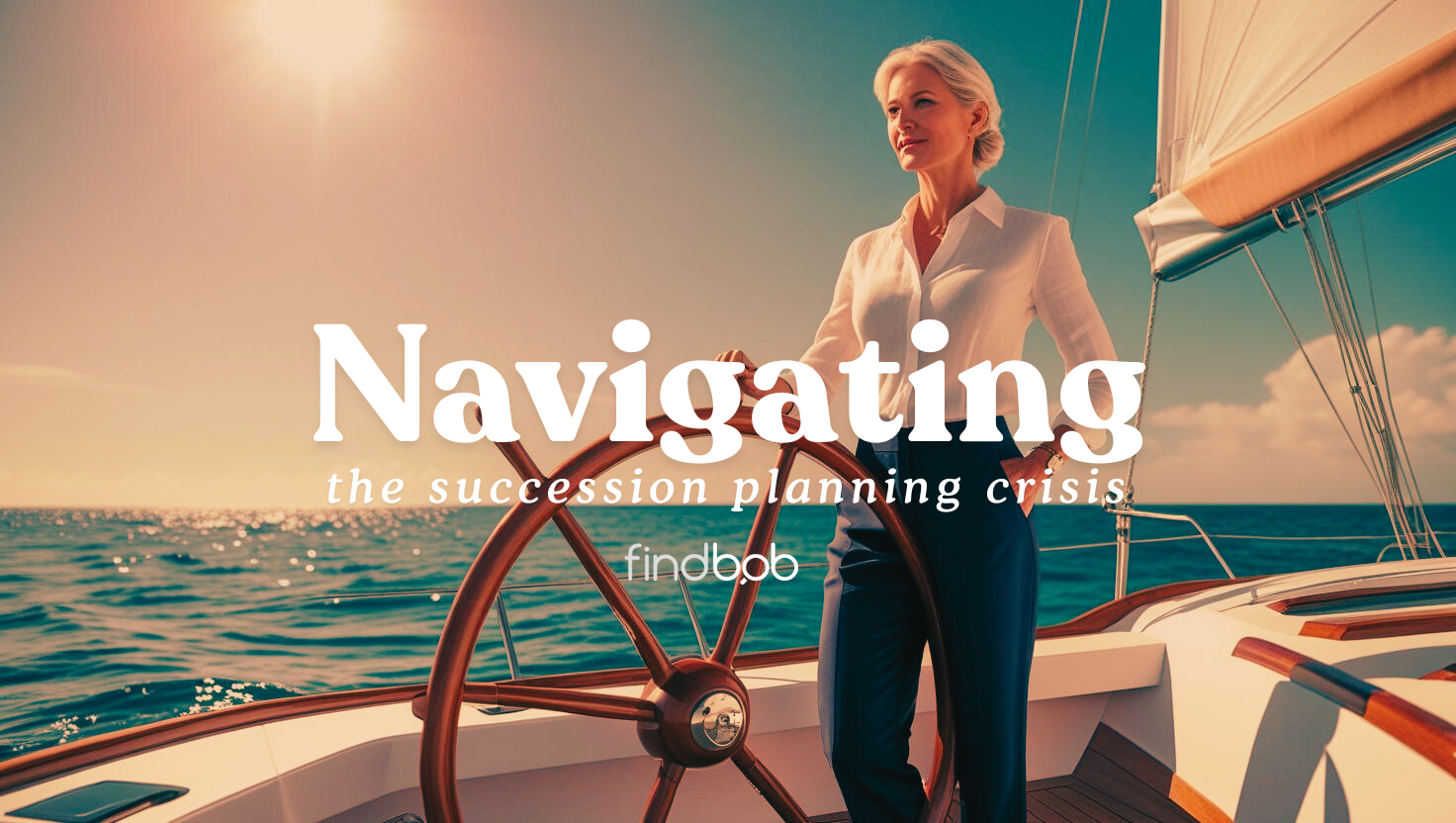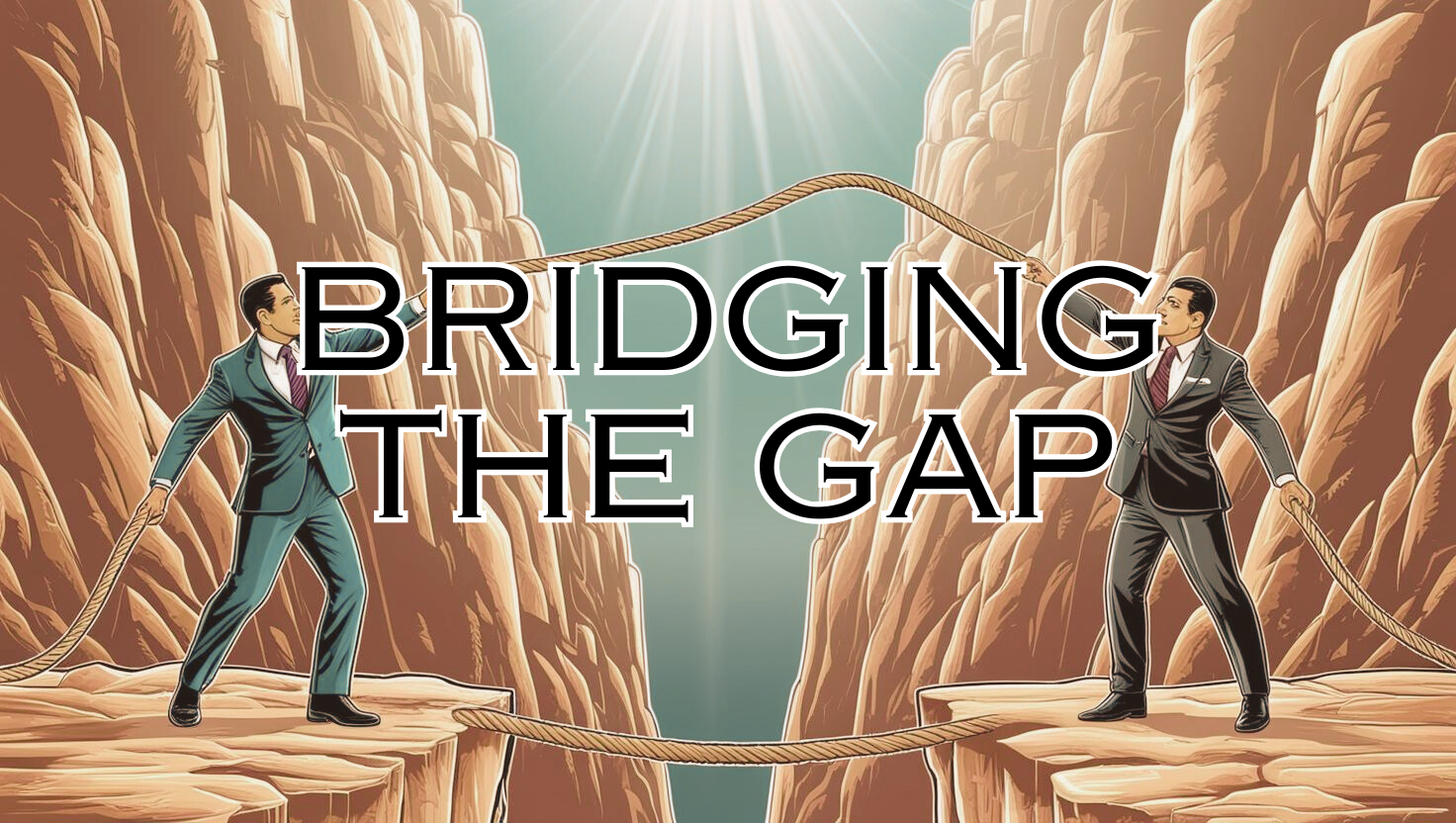Succession planning has been a hot topic in the industry for good reason - only 19% of independent advisors have an actionable succession plan in place. From research conducted in a survey that Find Bob facilitated, we know that 80% of advisors do not have a written succession plan and 75% of advisors do not have a plan for the continuity of their business in the event of a death or disability - but what is the difference between a succession plan and a business continuity plan? There has been much confusion on these two vital, but different plans that advisors should have in place for the benefit of their business, their clients, and their loved ones. If you find yourself scratching your head at the thought of the distinction between a business continuity plan and a succession plan, you’re not alone. In this post, we will take you through the basics, main differences between, and benefits of both a business continuity and succession plan.
All About Business Continuity
Simply put, business continuity is concerned with making sure that a business is able to provide continuous service to its clients at an acceptable, predefined level, despite any events that might impact the organization. When that organization is in the form of a sole proprietorship, it is solely the responsibility of that sole proprietor to ensure that their book of clients will be served at this predefined level despite any events that could impact the owner, such as a death or disability. Considering the previously stated fact that 75% of advisors within the financial services industry do not have a business continuity plan in place, that makes death or disability the #1 threat to single-owner practices in terms of ensuring the continuity of service to their clients.
The reality is that there are threats which could lead to catastrophic events, which any person could be impacted by, whether or not they are a business owner. The unique responsibility of a business owner is to recognize and mitigate against these very real threats, in order to ensure that the clients they serve year after year are taken care of despite such an event. The even more unique circumstances of a sole proprietor is that there are no built-in successors to step up to the plate if such an event should occur without a plan. This makes the importance of creating a business continuity plan in a sole proprietorship more prominent, and the negative impacts of not having one in place even more defined.
A business continuity plan is a proactive measure to ensure that critical services are delivered to clients during a disruption. Disruptions can actually take many forms, including natural disasters, cyber attacks, accidents, and more. However, the most pertinent of disruptions within the financial services industry are ones which directly impact the business owner, since a majority of practices operate as a sole proprietorship.
As stated, a business continuity plan includes measures to ensure the continuous delivery of services. That means it must identify the necessary resources (human, financial, etc.) to support continuity. In a business that has a single person providing those services, it must define an external party who would be responsible for providing those services in the event of a catastrophe. Therefore, this party must be certified and knowledgeable about the level of service to provide to the clients which would ensure as little disruption as possible. Another necessary aspect is the required funding to buy out the business owner’s ownership is in place. It’s important to note that it’s not just advised that there is a plan in place to minimize potential disruptions of service, it is both an obligation that the advisor has to their clients as well as the client’s right.
The Rundown on Succession Planning
Where business continuity planning considers the bare minimum requirements for ensuring that your clients do not experience a disruption of service in the event of a disaster, succession planning goes the extra mile and ensures there is an experienced incomer for the key leadership roles in a business when a planned transition, rather than an unplanned occurrence, takes place.
When a business takes the form of a sole proprietorship, succession planning by the owner will require that a qualified individual is brought into the practice and has the necessary knowledge and understanding of clients before the existing owner makes a transition, whether that be a partial retirement, full retirement or another situation. While succession planning is often seen as an act that signals the owner is looking towards an exit in the near future, it really doesn’t have to be that way. Strategic succession planning can easily mean growth for both parties and does not have to adhere to a short- or medium-term timeline. Instead, a long-term approach can be taken with a succession strategy in mind, which would benefit the senior business owner as well as the junior incumbent in many ways.
Many advisors may raise their eyebrows at the statement that investing time into a succession plan could lead to business growth, rather than simply outline an exit strategy for an advisor looking to make an exit shortly. However, the time spent on putting together a good succession plan will lead to growth if done in a strategic manner. Your succession plan is a living document which will open doors to growth that you wouldn’t have known to knock on without it.
Main Differences Between Business Continuity and Succession Plans
Now that you’ve gained a bit of clarity on what business continuity plans and succession plans are, here are a couple of the most important differences between the two. When it comes to differentiating between a business continuity plan and a succession plan in a sole proprietorship, things can get a little fuzzy because of how small the differences may seem. The following are the most significant differences between the two, from the perspective of an advisor who is a sole proprietor.
As previously mentioned, a business continuity plan is put in place to maintain continuous service in the event of an incident that would affect the organization that provides those services. Since a sole proprietorship is the most common type of business within the financial services industry, death or disability of the business owner are the events most likely to cause such a disruption. A business continuity plan is established to prevent such an occurrence from impacting clients through maintaining a prescribed level of service in the event of a disaster. A succession plan, however, is a living document which is designed to identify and bring in a successor when the business owner decides they want to phase out of the practice, not when they are forced to due to circumstances out of their control. Essentially the main difference here is that where a business continuity plan is in place in the event of a catastrophe, a succession plan would focus on the incumbent working with the business owner over a period of time until the eventual retirement takes place, by choice rather than necessity.
The next difference is that a business continuity plan is very specific in what aspects of a practice that it is concerned with. A business continuity plan is centred around preventing clients from experiencing a disruption of service, which could occur due to many different circumstances. This plan is utilized only if an event that would lead to a disruption of service occurs, and in no other situation. Further, the business continuity plan does not provide the opportunity for advisors to strategically incorporate growth, because of how specific it is, while a succession plan does. A succession plan should be treated as a living document and while it is mainly concerned with identifying successors for key players of an organization, there is a lot of room to use this plan to create growth opportunities. A succession plan should identify successors for the most important people within an organization, but it can involve agreements that bring business opportunities to the practice along with those successors. Since the succession plan is intended to be used while the business owner or senior organizational members are still part of the organization, it is a strategic endeavour rather than a contingency plan.
How Can These Plans Benefit Me?
There are countless benefits to having both a business continuity and succession plan in place. While there is no contesting the amount of effort that you will have to expend in putting both of these plans in place, the value that you will get in return is truly priceless. As it has been expressed throughout history, if you have failed to plan, you’re planning to fail. Therefore, set yourself up for success by establishing these two plans sooner rather than later. The key benefits that these plans will bring to your business will be an important piece of understanding as you begin the planning process, and these benefits are outlined in this section.
While it’s obvious that you must make sure your business is compliant and that you should mitigate your business against as many potential risks as possible, it might not be obvious that establishing a business continuity plan will increase your reputability with clients. A proper business continuity plan with an identified successor and financing in place shows both existing and potential clients that you take their needs seriously, and that you have a plan for them in case something happens to you. Building up the confidence that your customers have in you means that they are more likely to be loyal customers, and to recommend your business to others. The benefits of having a client base that will advocate for your services cannot be disputed. Showing your clients, through establishing a business continuity plan, that you put their needs first no matter what happens to you will cultivate the kind of advocacy that leads to referrals and subsequent growth.
Succession planning offers much of the same benefits that a business continuity plan does, but it is more suited to have growth opportunities incorporated into the plan because of its wider scope. However, the most significant benefit that will resonate with a majority of advisors is the security it would provide for your family if you die unexpectedly or simply providing funding for your retirement. No one wants to imagine what their family would have to go through if they, as the provider for their family, pass away unexpectedly. Not only will this have severe emotional impacts, but without a succession plan in place, it would likely have negative financial implications as well. Minimize the trauma that your family would have to endure by properly planning while you can, and make sure all your ends are tied up in the event of a death or disability. While a business continuity plan will show to your clients that you are prepared to meet their needs in any event, a succession plan will ensure that your family and loved ones are taken care of financially.
Considering the previously stated facts about the state of business continuity and succession planning within the industry, investing the time into creating these plans will actually give you a competitive advantage that we know only about 20% of other advisors also have. This is valuable information, that when coupled with the changing regulations within the industry, could serve to help revitalize your competitive edge while harnessing all the other benefits of both plans. The competitive advantage that business continuity and succession planning brings stems from the increased confidence that your clients will have in your practice and the likelihood to recommend you to others, but doesn’t stop there. These plans will allow your business to be in a comparatively better position than competitors in the event of a natural disaster, for example, or perhaps a new regulation that impacts the whole industry. Thinking of both business continuity and succession planning as a way to increase your practices’ competitiveness highlights the value of planning in the increasingly changing landscape advisors find themselves in.
Now Where Do I Start?
Knowing the differences between and benefits of business continuity and succession planning is a great start to figuring out which plan is right for you and your practice at this point in time. In a sole proprietorship, it could seem as though there is overlap between the two plans. However as it has been stated, there is a difference in the scope that each plan covers, and the benefits that they will provide to you, your practice, and your loved ones once established. To have a good foundation for a transition plan, starting with a continuity plan is recommended. A continuity plan and partner do not necessarily cross over into transition, however could evolve into a transition plan and partner due to the fact that the prior sets a good foundation to work up from towards the latter. The continuity plan is really a “what if” plan, which could be executed during the development of a succession plan, therefore should be the starting point to those advisors who do not have any plan in place to speak of.
With changing regulations, an increasingly competitive and changing landscape, and the reality of potential risks, developing both a business continuity and succession plan should be at the top of mind for those advisors who do not have them in place. If you are motivated to begin planning for either one of these, joining Find Bob can help you with the planning process, as well as finding a successor to work with.




